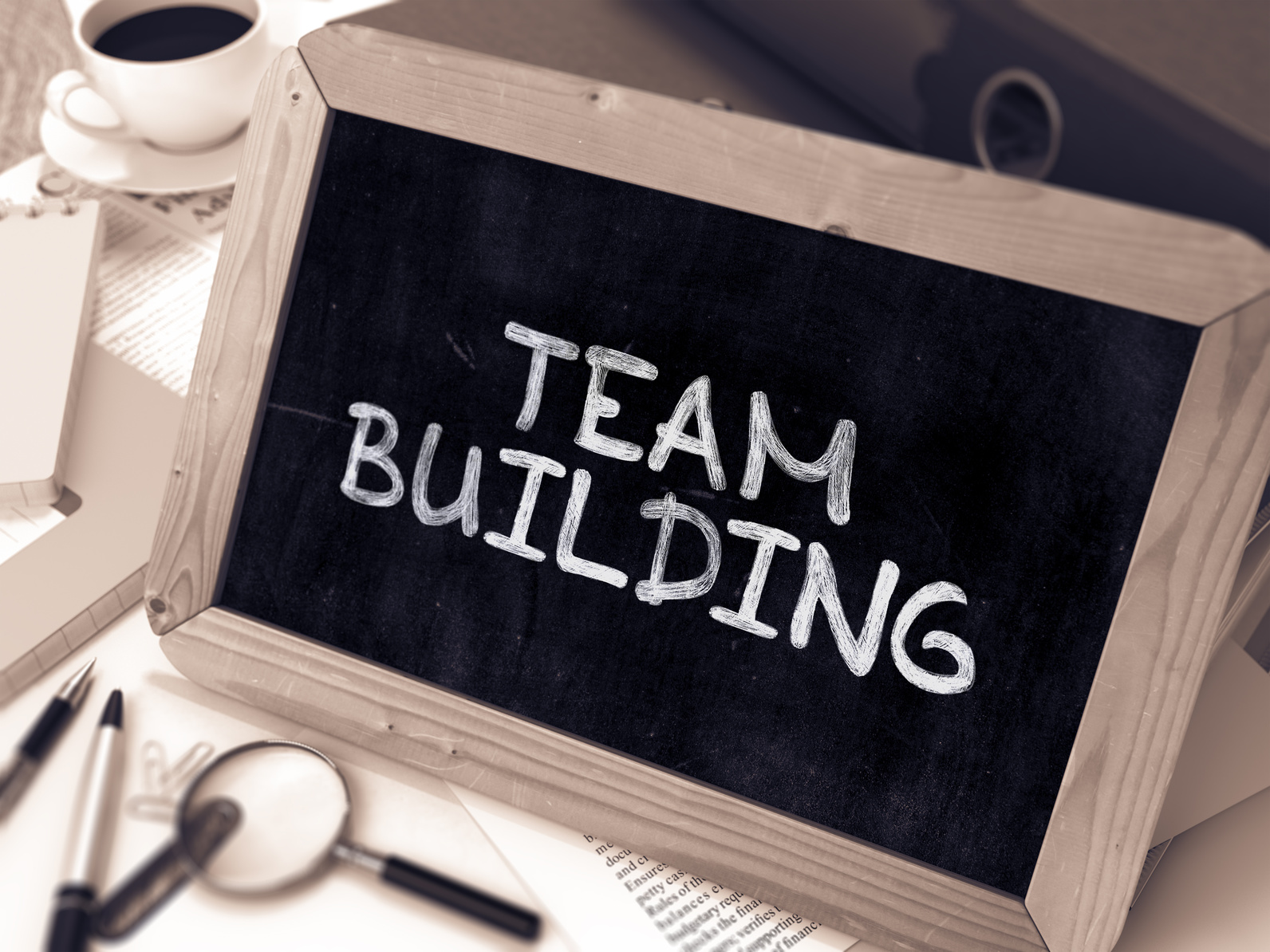In today’s fast-paced work environment, it’s easy to become so focused on deadlines and deliverables that we forget about one of the most essential components of a satisfying work life: friendships.
Cultivating positive work relationships is critical to creating a supportive work environment and enhancing collaboration and productivity.
In this article, we’ll examine the importance of fostering friendships in the workplace and offer strategies for creating meaningful connections with your colleagues.

corporate-event-activities
Key Takeaways
- Developing work friendships is crucial to cultivating a positive work environment.
- Cultivating positive work relationships leads to increased teamwork and productivity.
- Creating a welcoming work environment is essential to forming and maintaining work friendships.
- Open communication is crucial in fostering work friendships.
- Identifying common interests and engaging in collaborative activities can help establish meaningful work friendships.
1 – How to Create Work Friendships – The Art of Play
Developing work connections and establishing meaningful work friendships is essential for promoting teamwork and camaraderie in the workplace.
Genuine connections with colleagues not only make work more enjoyable but also increase productivity and collaboration.
Research has shown that employees with work friendships report higher levels of job satisfaction and are more likely to stay in their jobs long-term.
Building strong relationships with colleagues can also lead to better communication, more innovative ideas, and a supportive work environment.
By fostering positive work relationships, you can create a culture of teamwork and collaboration that promotes productivity and success.
So, take the time to get to know your colleagues and develop genuine connections.
Your work friendships will not only make your job more enjoyable but also contribute to your professional growth and development.
2 – Create a Welcoming Work Environment
Creating a welcoming work environment is crucial in cultivating positive work relationships, promoting teamwork and camaraderie, and building rapport with colleagues. Here are some effective strategies:
- Be approachable: Make a conscious effort to greet and engage with your colleagues. Smile and show an interest in their lives outside of work.
- Encourage open communication: Create opportunities for open and transparent conversations with your coworkers. Use active listening skills to understand their perspectives and develop deeper connections.
- Facilitate team-building activities: Organize fun activities or events that encourage team bonding, such as team lunches or volunteering opportunities.
- Show appreciation: Express gratitude for your colleagues’ hard work and contributions. Celebrate milestones and achievements together.
Remember, building a welcoming work environment requires effort from everyone.
By creating a supportive workplace culture, you can foster stronger connections with your colleagues and enhance collaboration and productivity.
3 – Encouraging Open Communication
In order to build positive work relationships and establish meaningful work friendships, it’s crucial to encourage open communication with your colleagues.
By fostering a culture of transparency and honesty, you can create an environment that promotes teamwork and collaboration. Below are some tips on how to encourage open communication in the workplace:
- Be approachable: Create an environment where your colleagues feel comfortable sharing their thoughts and ideas with you.
- Listen actively: When someone is speaking with you, focus on what they are saying and give them your full attention.
- Be clear and concise: When communicating with your colleagues, be clear in your message and avoid using vague or convoluted language.
- Encourage feedback: Ask for feedback from your colleagues and be open to constructive criticism.
By implementing these strategies, you can develop a supportive work environment that values open communication and fosters positive work relationships.
Example

“I’ve found that by being approachable and actively listening to my colleagues, we’ve been able to work more effectively together.
I’m always open to feedback and appreciate when my colleagues are honest with me, even if it’s not what I want to hear.”
4 – Find Common Interests
Building strong work friendships is essential to promote teamwork and camaraderie in the workplace.
Identifying shared hobbies or passions is one effective way to create meaningful connections with colleagues.
When you discover common interests, you have a natural topic to discuss and bond over, giving you a sense of belonging and shared purpose.
Some ways to find common interests with coworkers include:
- Joining company clubs or interest groups
- Participating in team-building activities that involve hobbies or interests
- Attending company events such as sports games, book clubs, or volunteer work
Remember to be genuine in your approach and don’t force a connection if there isn’t one. It’s also important to respect boundaries and not become too preoccupied with your personal interests during work hours.
“By finding common interests, you can build deeper connections with your coworkers and create a more positive and supportive work environment.”

Example:
| Common Interest | Colleague | Opportunities to Connect |
|---|---|---|
| Cycling | Tom | Join a company cycling club, start a lunchtime cycling group |
| Cooking | Jessica | Attend a company-sponsored cooking class, share recipes during lunch breaks |
| Pets | Mark | Organize an office pet day, share photos of pets during work breaks |
5 – Collaborate and Plan Team Building Activities
Developing meaningful work connections and fostering friendships in the workplace requires collaborative effort.
Engaging in team-building activities not only promotes teamwork and camaraderie but also nurtures work friendships.
Collaboration is essential in building connections with colleagues.
Consider participating in team games, projects or brainstorming sessions and offer ideas and insights while maintaining an open mind.
To further promote teamwork and camaraderie, suggest planning periodic team-building exercises and activities.
| Activity | Description |
|---|---|
| Escape Room Challenge | A collaborative game where team members solve puzzles and clues to get out of an escape room. |
| 6 – Scavenger Hunt | A fun outdoor activity where teams follow clues, complete challenges, and find hidden objects. |
| Charity Work | Participating in charitable events or donation drives together can be a great way to bond while giving back to the community. |
Engaging in collaborative projects and team-building activities can help promote teamwork, boost morale, and foster long-lasting work friendships.

game-shows-for-team-building-NYC-METRO
6 – Show Appreciation
Cultivating positive work relationships is essential for developing work connections and establishing meaningful work friendships.
By creating a supportive work environment, you can enhance teamwork and camaraderie, making your workplace a more enjoyable and productive place to be.
One way to foster these connections is by showing appreciation to your colleagues.
Expressing gratitude and acknowledging the contributions of coworkers can be a simple yet effective way to strengthen work friendships.
A sincere thank you or a small gesture of appreciation can go a long way in building rapport with colleagues and cultivating positive work relationships.
Here are some strategies to consider:
1. Create a “Thank You” Note
Consider creating a thank you note for your colleague, highlighting something specific they did that you appreciated.
You can leave it on their desk or send it via email.
2. Give a Shout Out
Directly acknowledging your colleague’s achievements or contributions in a team meeting or company-wide announcement can help build appreciation and strengthen the connection with your colleagues.
It also creates a positive work culture.
3. Offer Help
Offering to help your colleague with a task they’re struggling with or taking on some of their workload can be a powerful gesture of appreciation and camaraderie.
“Showing appreciation is key to strengthening work friendships. It’s important to recognize and acknowledge the contributions of your colleagues in a meaningful way.”
Got Team Building Games? PRESS PLAY!
![]()
Book a live game show experience today!
Contact us for further details. We come to you..
For Immediate assistance by text – 917-670-4689
No deposit required. 5-star rated on google.
We plan and facilitate all activities.
7 – Manage Conflict and Differences
Despite your efforts to create positive work relationships and meaningful friendships, conflicts may still arise.
It’s essential to learn how to manage these differences effectively to avoid damaging relationships and creating an uncomfortable work environment.
Cultivating positive work relationships involves identifying and addressing problems before they escalate.
It’s crucial to approach conflicts with an open mind and a willingness to listen to your colleagues’ perspectives.
Consider scheduling a private meeting to discuss the issue and find a mutually beneficial solution.
Establishing meaningful work friendships requires mutual respect, honesty, and trust. If conflicts arise, it’s essential to remain calm and approach the situation objectively.
Avoid attacking your colleague or making sweeping generalizations. Instead, focus on the specific issue at hand and work together to identify a solution.
Enhancing work relationships and friendships involves acknowledging your colleague’s feelings while expressing your own. Be receptive to feedback and willing to compromise to reach a resolution that works for everyone.
By managing conflicts and differences effectively, you can strengthen your work relationships and maintain a positive work environment.

8 – Balance Personal and Professional Boundaries
While work friendships can be rewarding, it’s essential to maintain boundaries between personal and professional aspects of your relationship. These boundaries help to ensure that your friendship doesn’t negatively affect your work and vice versa.
Remember that your primary role in the workplace is to complete your job responsibilities. It’s essential to prioritize your tasks and avoid letting your friendship distract you from your work. Ensure that you hold yourself accountable and avoid relying on your friend to complete your tasks.
At the same time, make sure to respect your friend’s professional boundaries. Avoid sharing confidential information or discussing sensitive topics that could create conflict or discomfort in the workplace. Remember that your conversations and actions must align with the workplace’s standards, rules, and regulations.
To maintain healthy personal and professional boundaries, take the initiative and establish clear communication with your friend. Define your expectations and agree on a way to navigate the friendship while leaving room for adjustments as needed. By setting these boundaries, you can enjoy a positive work friendship while creating a supportive work environment.
9 – Overcome Common Obstacles
While building work friendships can be a rewarding experience, it’s not always easy. There are many challenges that can stand in the way of developing meaningful connections with colleagues. To establish strong work connections and foster friendships in the workplace, here are some obstacles you may encounter and how to overcome them:
1. Lack of Common Ground
One of the biggest challenges you may face in developing work connections is finding common ground with colleagues. If you don’t share similar interests or values, it can be difficult to establish a meaningful relationship.
To overcome this, try to find activities that you and your colleagues enjoy. This can be anything from attending after-work events to volunteering for a common cause. Also, take the initiative to learn about your colleagues’ hobbies and interests. Ask questions and show a genuine interest in what they enjoy.
2. Workplace Competition
In some work environments, there may be a sense of competition among colleagues. This can make it difficult to establish trust and build meaningful relationships.
To overcome workplace competition, focus on collaboration and teamwork. Look for opportunities to work together on projects or assignments. This can help break down barriers and establish a sense of camaraderie.
3. Busy Schedules
In today’s fast-paced work environment, it can be difficult to find time to connect with colleagues outside of work obligations.
To overcome busy schedules, look for small but meaningful ways to connect with colleagues. This can be anything from sharing a quick conversation during a coffee break to scheduling a lunch meeting. Also, take advantage of technology to stay in touch. Use instant messaging or email to stay connected with colleagues when you can’t meet in person.
4. Personality Conflicts
Another obstacle you may encounter in developing work connections is personality conflicts with colleagues.
To overcome personality conflicts, try to maintain a professional attitude and focus on finding common ground. Avoid dwelling on differences and focus on shared goals and values. Also, be honest and direct with colleagues when conflicts arise. Communicate your concerns in a respectful manner and work together to find a solution.
By addressing these common obstacles, you can establish stronger work connections and foster friendships in the workplace. Remember, building meaningful work friendships takes time and effort, but the benefits are well worth it.

boost-staff-morale
Sustaining Work Friendships
Now that you’ve successfully built work friendships, it’s crucial to sustain them over the long term. Cultivating positive work relationships takes effort and consistency, but the benefits are worth it. Here are some strategies to enhance work relationships and friendships:
Stay Connected
Maintain regular communication with your colleagues, even if you’re no longer working on the same project. Schedule coffee dates, lunch breaks, or happy hours to catch up and stay connected. Keeping in touch will solidify your work friendships and make it easier to collaborate in the future.
Show Support
Showing support is essential in building strong work friendships. Be there for your colleagues during challenging times, whether it’s a work-related issue or a personal matter. A kind word or supportive gesture can go a long way in enhancing work relationships and friendships.
Collaborate
Collaborating on projects is an excellent way to reinforce work friendships. Working together towards a common goal promotes teamwork, camaraderie, and trust. Additionally, collaborating with colleagues in different departments can expand your network and provide new opportunities for growth and development.
Be Respectful
Respect your colleagues’ boundaries and priorities. Avoid interrupting them while they’re busy or bombarding them with work-related questions after hours. Being considerate of their time and needs will solidify your work friendships and enhance your overall work relationships.
Express Gratitude
Take time to express gratitude for your colleagues’ contributions. A simple thank-you note or verbal recognition shows that you value their efforts and can go a long way in strengthening work friendships. Additionally, reciprocating appreciation can create a positive and supportive work environment.
By implementing these strategies, you can sustain and nurture work friendships over time, enhancing work relationships and friendships while building a supportive work environment.
FAQ – How to Create Work Friendships – Why It’s Important

frequently asked questions
How can I create work friendships?
Building work friendships involves fostering positive relationships with your colleagues.
You can start by being friendly and approachable, showing interest in others, and actively listening to their thoughts and ideas.
It’s important to be genuine and supportive, as well as finding common interests to bond over.
Why are work friendships important?
Work friendships are valuable because they contribute to a positive work environment. Work friendships promote teamwork and camaraderie, and enhance collaboration and productivity.
Having meaningful connections with coworkers can also improve job satisfaction and overall well-being.
How can I create a welcoming work environment?
To create a supportive work environment, it’s crucial to build rapport with your colleagues.
This can be done by showing respect, being inclusive, and practicing active communication.
By fostering positive work relationships, you can promote teamwork and camaraderie among coworkers.
How can I encourage open communication?
Open communication is key to developing work friendships.
To encourage transparent and meaningful conversations with your coworkers, it’s important to create a safe space for sharing thoughts and ideas.
Actively listen, provide constructive feedback, and be receptive to different perspectives.
How can I find common interests with my colleagues?
Finding common interests with your colleagues can help create meaningful connections.
Take the time to get to know your coworkers and explore shared hobbies or passions.
Look for opportunities to engage in activities outside of work to foster stronger relationships.

employee-engagement-game-show-idea
How can collaboration and team-building activities enhance work friendships?
Engaging in collaborative projects and organizing team-building activities can foster work friendships.
Participating in shared experiences and achieving common goals can strengthen bonds with colleagues, promote teamwork, and build trust and camaraderie.
How can I show appreciation to my colleagues?
Showing appreciation is important in strengthening work friendships.
Recognize and acknowledge the contributions of your coworkers through expressions of gratitude, compliments, or small gestures of kindness.
Taking the time to show that you value and appreciate their efforts can deepen your relationships.
How can I manage conflict and differences in work friendships?
Conflict and differences are a natural part of any relationship, including work friendships. To manage these challenges,
it’s essential to address issues openly and honestly, practice active listening, and find common ground. Seek to understand different perspectives and work collaboratively to find resolutions.
What are the common obstacles in creating work friendships, and how can I overcome them?
Common obstacles in creating work friendships include time constraints, different interests, or personal differences.
To overcome these challenges, make an effort to connect and engage with your colleagues, be open to learning from each other, and focus on finding common ground.
Building trust and being patient can also help overcome potential obstacles.
How can I sustain work friendships in the long term?
Sustaining work friendships requires ongoing effort and nurturing. Make time for social interactions with your colleagues, both inside and outside of work.
Engage in meaningful conversations, offer support during challenging times, and celebrate successes together.
Regularly checking in and maintaining communication is key to fostering long-term work friendships.









